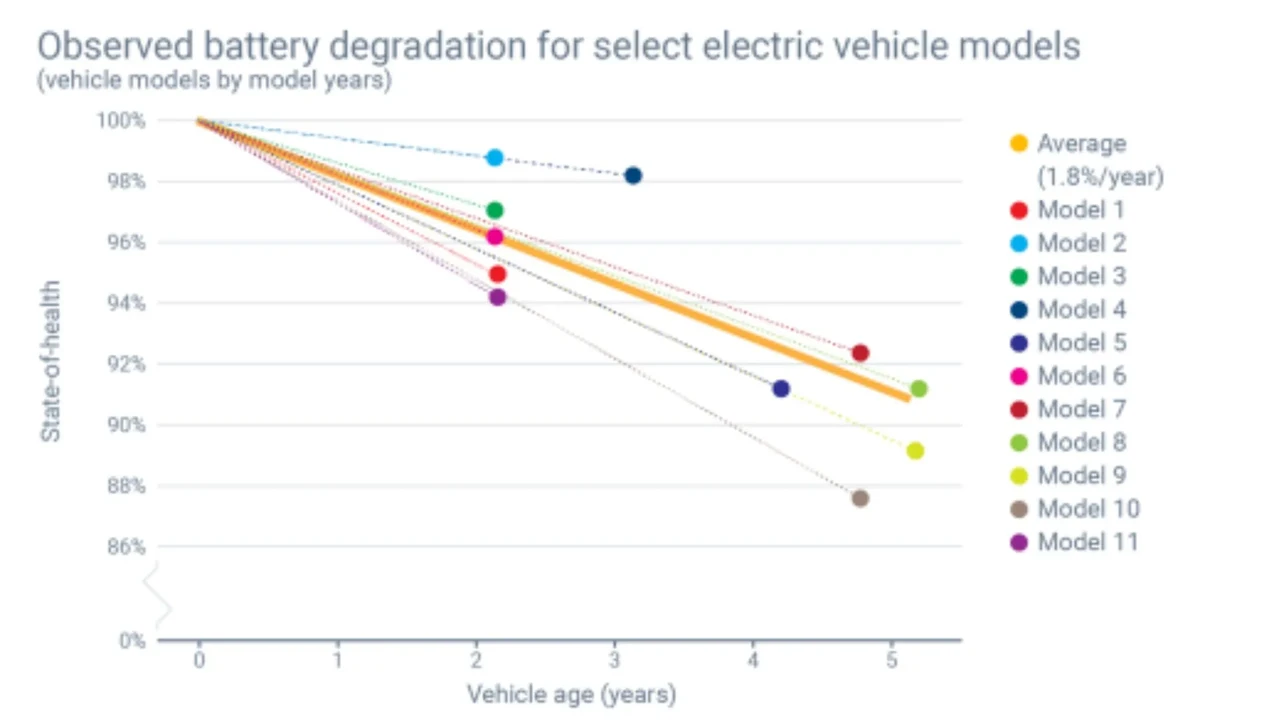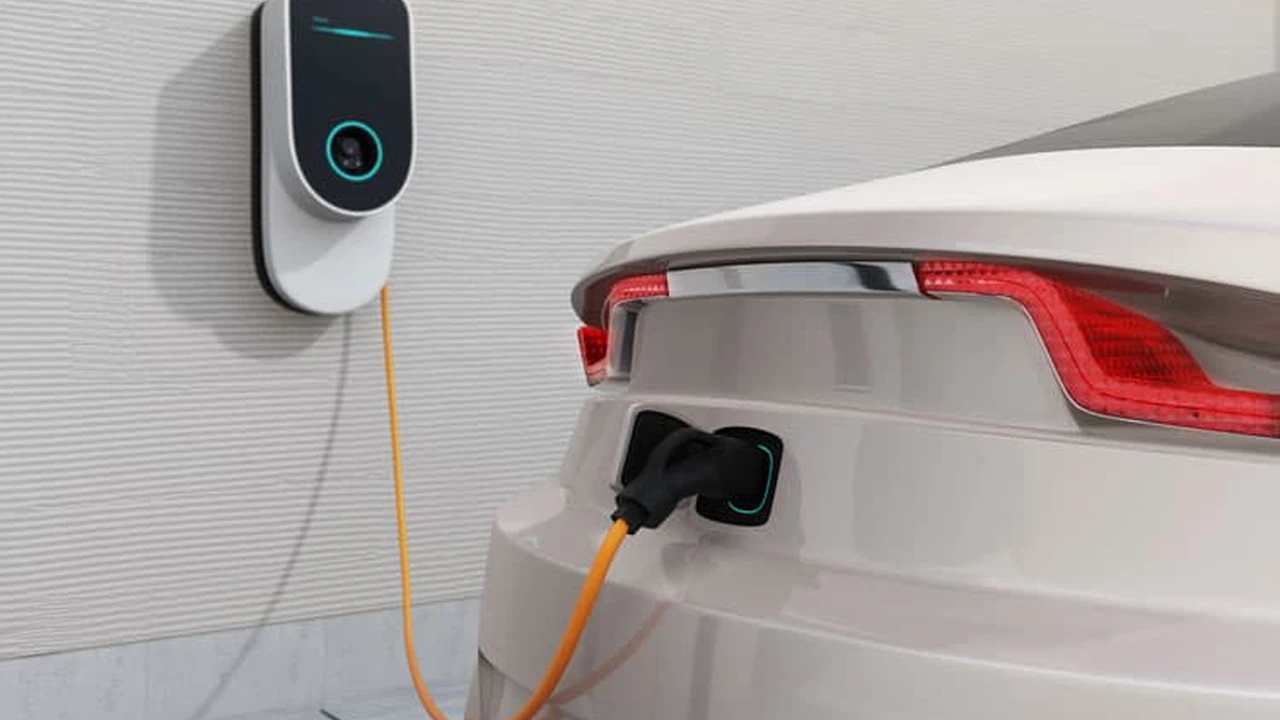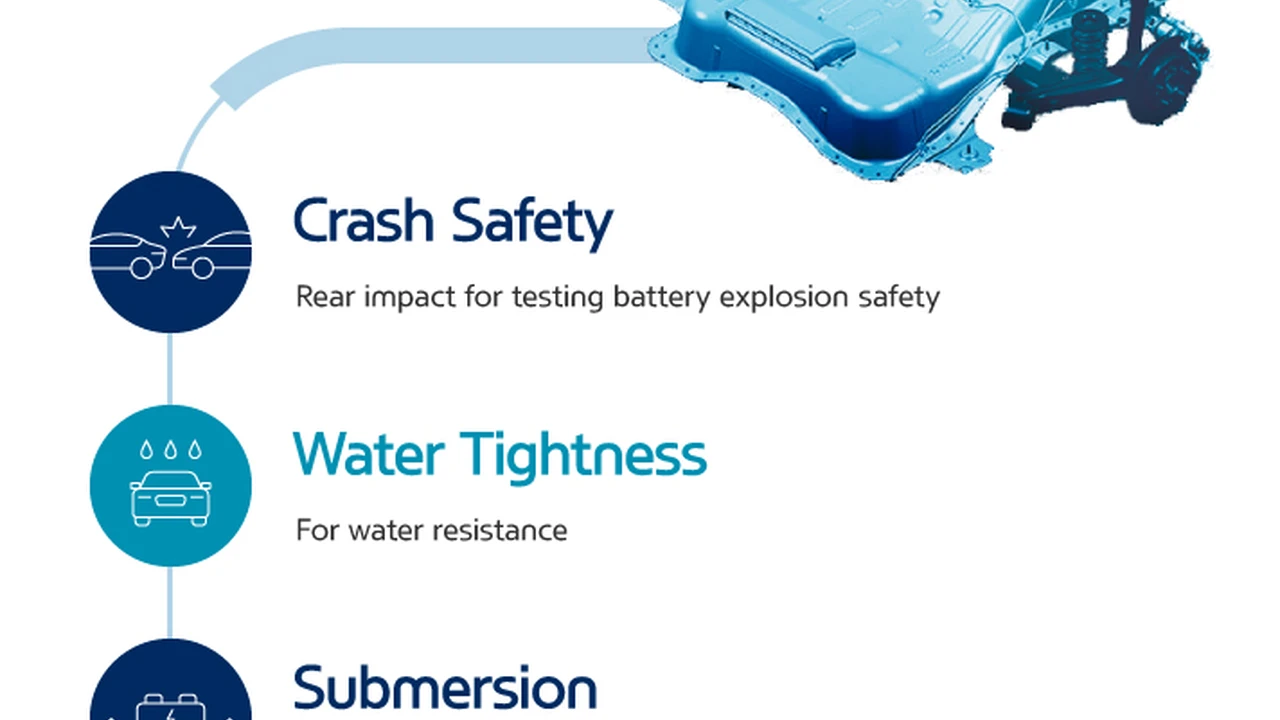EV Battery Degradation Rates by Model
A comparison of electric vehicle battery degradation rates across various popular EV models.

EV Battery Degradation Rates by Model
Hey everyone, let's talk about something super important for any EV owner or anyone thinking about getting an electric car: battery degradation. It's a big topic, and frankly, it can be a bit confusing with all the different numbers and claims out there. But don't worry, we're going to break it down, look at what causes it, and most importantly, compare how different popular EV models hold up over time. We'll also dive into some real-world data and even recommend some tools to help you keep an eye on your own battery health. So, buckle up!
Understanding EV Battery Degradation What It Means for Your Electric Vehicle
First off, what exactly is battery degradation? In simple terms, it's the natural process where a battery loses some of its capacity over time and use. Think of your smartphone battery – after a few years, it doesn't hold a charge as long as it used to, right? EV batteries are the same, but they're designed to be much more robust and last for many, many years and miles. This loss of capacity means your car's maximum range might slightly decrease, and its overall performance could be marginally affected. It's a gradual process, not a sudden drop-off, and modern EV batteries are incredibly resilient.
Factors Influencing Electric Vehicle Battery Health and Longevity
So, what makes an EV battery degrade? There are several key factors at play, and understanding them can help you maximize your battery's lifespan:
- Charging Habits: This is a big one. Constantly charging to 100% and letting it drop to very low levels (below 20%) can put more stress on the battery. Frequent DC fast charging, especially in hot weather, can also accelerate degradation compared to slower AC charging.
- Temperature Extremes: Batteries don't like being too hot or too cold. Extreme heat can cause chemical reactions that degrade the battery faster, while extreme cold can temporarily reduce capacity and put more strain on the battery during charging and discharging.
- Mileage and Age: It's pretty straightforward – the more you use the battery (more miles driven), and the older it gets, the more it will degrade. However, modern battery management systems (BMS) are very good at mitigating this.
- Driving Style: Aggressive driving with frequent hard accelerations and decelerations can put more stress on the battery than smooth, consistent driving.
- Battery Chemistry and Management System (BMS): Different battery chemistries (like NMC, LFP) have different degradation characteristics. Also, the car's Battery Management System plays a crucial role in optimizing charging, discharging, and temperature to protect the battery.
Comparing Battery Degradation Rates Across Popular EV Models
Now for the juicy part – how do different EVs stack up? It's tough to give exact numbers because individual usage varies so much, but we can look at trends and data from large studies and owner reports. Generally, most modern EVs show very good battery longevity, often retaining well over 90% of their original capacity after several years and tens of thousands of miles. Here's a general overview based on available data and common observations:
Tesla Models S 3 X Y Battery Longevity Insights
Tesla vehicles, being some of the most common EVs on the road, have a lot of data available. Owners often report excellent battery retention. Early Model S and X vehicles, especially those with larger battery packs, have shown impressive longevity, often retaining 85-90% capacity after 150,000-200,000 miles. Newer Model 3 and Y vehicles, particularly those with LFP (Lithium Iron Phosphate) batteries (often found in Standard Range models), are showing even better resilience to degradation, especially with frequent 100% charging. Tesla's sophisticated thermal management and BMS are key here.
Nissan Leaf Battery Degradation Concerns and Improvements
The early Nissan Leaf models (pre-2018) were notorious for significant battery degradation, especially in hot climates. This was largely due to their lack of an active liquid thermal management system for the battery. However, newer Leaf models (2018 onwards) have improved battery chemistry and some passive cooling, leading to better, though still not class-leading, degradation rates. If you're looking at a used Leaf, definitely check the battery health (often displayed as 'bars' on the dashboard).
Chevrolet Bolt EV Battery Performance and Degradation
The Chevrolet Bolt EV has generally shown good battery longevity. While there were battery recall issues for manufacturing defects, the underlying battery chemistry (LG Chem) and thermal management system have proven to be quite robust. Owners typically report minimal degradation over several years of ownership, often in the low single digits percentage-wise.
Hyundai Kona Electric and Kia Niro EV Battery Health
These Korean cousins share similar battery technology and have consistently performed well in terms of battery degradation. Owners frequently report very low degradation rates, often less than 5% after 50,000 miles or more. Their liquid-cooled battery packs are a major factor in their excellent longevity, even with frequent fast charging.
Volkswagen ID Series Battery Durability and Longevity
The VW ID.3, ID.4, and other ID series vehicles utilize modern battery technology with robust thermal management. While they haven't been on the road as long as some other models, initial data suggests very good battery longevity, comparable to Hyundai/Kia. VW also offers a strong battery warranty, which provides peace of mind.
Ford Mustang Mach-E Battery Degradation Analysis
The Mach-E, with its advanced battery pack and thermal management, is also showing promising signs of low degradation. Early owner reports indicate that the battery holds up very well, even with varied charging habits. Ford's focus on performance doesn't come at the expense of battery health.
Tools and Resources for Monitoring Your EV Battery Health
Want to keep an eye on your own EV's battery health? There are some great tools out there:
OBDII Scanners for EV Battery Diagnostics
An OBDII (On-Board Diagnostics II) scanner is a device that plugs into your car's diagnostic port. While many are designed for gasoline cars, some are specifically made for EVs or have EV-specific apps. These can read various parameters, including battery health (State of Health - SOH), individual cell voltages, and temperature. You'll typically need a Bluetooth OBDII dongle and a compatible app on your smartphone.
- Recommended Product: OBDLink CX Bluetooth OBD2 Adapter
- Use Case: For DIY enthusiasts who want detailed real-time data.
- Comparison: More advanced than basic code readers, offers deeper insights.
- Price: Around $80-$100 USD.
Smartphone Apps for EV Battery Monitoring
Many EV-specific apps can connect to your car (either directly via API or through an OBDII dongle) and provide battery health information. These often present the data in an easy-to-understand format, sometimes even tracking degradation over time.
- Recommended Product: Recurrent Auto (for various EVs)
- Use Case: Provides battery health reports and insights based on your driving and charging data.
- Comparison: Focuses on long-term trends and comparisons with similar vehicles.
- Price: Free for basic reports, premium features may vary.
- Recommended Product: LeafSpy Pro (for Nissan Leaf)
- Use Case: Essential for Nissan Leaf owners to get detailed battery health information, including individual cell voltages and capacity loss.
- Comparison: Unparalleled detail for Leaf owners, far beyond what the car's dashboard shows.
- Price: App costs around $15-20 USD, requires an OBDII dongle.
- Recommended Product: ScanMyTesla (for Tesla vehicles)
- Use Case: Provides in-depth battery and vehicle data for Tesla owners, including SOH, cell temperatures, and charging statistics.
- Comparison: Offers a level of detail not available through Tesla's native app.
- Price: App costs around $10-15 USD, requires an OBDII dongle.
Dealership Diagnostics and Professional Battery Health Checks
If you're concerned about your battery or just want a professional opinion, your dealership can perform a diagnostic check. They have specialized tools that can give a very accurate assessment of your battery's health. This is especially useful if your car is still under warranty and you suspect an issue.
Maximizing Your EV Battery Lifespan Practical Tips
While degradation is inevitable, you can definitely slow it down. Here are some practical tips:
- Avoid Constant 100% Charging: Unless you have an LFP battery and are advised to, try not to charge to 100% every day. For daily driving, keeping your charge between 20% and 80% is often recommended.
- Minimize Extreme Discharges: Don't regularly let your battery drop below 20%.
- Limit Frequent DC Fast Charging: Use fast charging when you need it for long trips, but for daily top-ups, stick to Level 2 (AC) charging.
- Manage Temperature: If possible, park your car in the shade in hot weather or in a garage in extreme cold. Some EVs allow you to precondition the battery before charging or driving in extreme temperatures.
- Smooth Driving: Avoid aggressive acceleration and braking when possible.
The Future of EV Battery Longevity and Technology
The good news is that battery technology is constantly improving. Manufacturers are developing new chemistries, more sophisticated thermal management systems, and smarter Battery Management Systems that will further extend battery life. Solid-state batteries, for example, promise even greater energy density and potentially better longevity. So, while battery degradation is a real thing, it's becoming less and less of a concern for EV owners, and the industry is moving towards even more durable and long-lasting solutions.
Ultimately, modern EV batteries are designed to last the lifetime of the vehicle, often exceeding 150,000-200,000 miles with minimal noticeable degradation for the average driver. So, don't let battery degradation fears hold you back from enjoying the benefits of electric vehicle ownership!
:max_bytes(150000):strip_icc()/277019-baked-pork-chops-with-cream-of-mushroom-soup-DDMFS-beauty-4x3-BG-7505-5762b731cf30447d9cbbbbbf387beafa.jpg)






